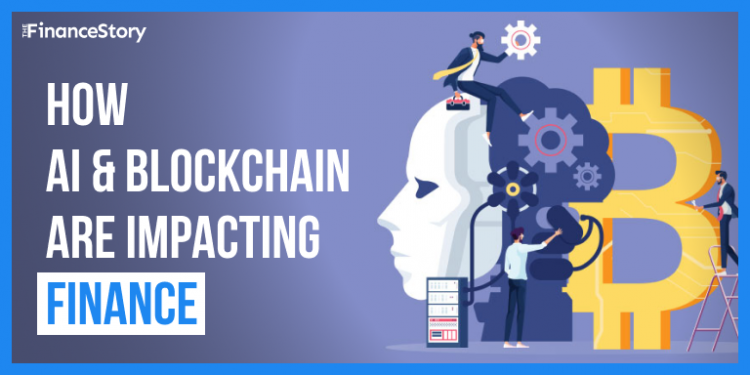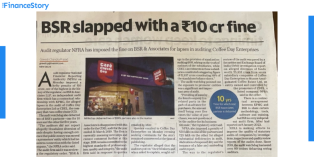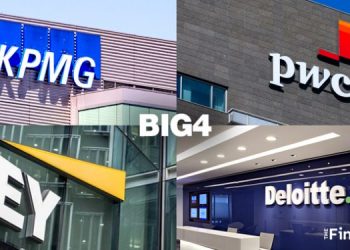- Blockchain will make every stakeholder part of the transaction and ensure transparency for all parties in finance.
- The audit function will be automated by AI and finance professionals can make faster decisions for their companies rather than spending time creating reports.
- Experts predict AI and Blockchain becoming mainstream in 15 years.
- Experts say CAs should use AI currently to understand complex data sets.
Finance heads of Wipro Enterprises and the World Food Programme believe that AI and Blockchain will fundamentally change the way finance professionals operate.
“Use of Artificial Intelligence in finance functions is imminent, changes in technology are constant and one only has to embrace the change. AI will make financial professionals make strategic decisions faster” says Gareth Meaker, finance officer at the World Food Programme.
When a global non-profit’s finance leader believes in the change, then there is a need to understand why blockchain and AI are only going to aid the finance profession.
Blockchain, if you are discovering it for the first time, is a file system and a system of record that offers immutability between all the parties involved in a transaction.
It essentially takes away the need for an intermediary to promise the payment between two parties. In fact, the intermediary can become part of the blockchain as an additional player to verify a transaction between several parties.
Now, there are public blockchains that are truly decentralized and not part of a central server node. But, there are private blockchains too.
AI on the other hand is the evolution of algorithms from rule-based systems to self-governing and prescriptive systems. They too can be in the realm of private and public systems. They can be decentralized and centralized too.
“In a blockchain, there is this concept called the triple entry system. It is important for a finance professional to be interested in this system because it automatically manages all transactions and AI can crunch large amounts of data, making the auditing process automatic. So, a finance professional need not audit anymore,” says Aanchal Thakur founder of Spherium, a decentralized Blockchain that brings real-world assets into digital finance through decentralized automation.
According to Deloitte
Audit technologies can help reduce the length and complexity of audits. For example, robotic process automation can standardize and speed workflows, while AI and analytics help auditors visualize and understand entire populations of data and point to correlations, anomalies, and outliers, thereby improving risk identification and focusing on what matters most. It is also very likely that, in the next few years, more audits will be augmented by cognitive technologies.
Now Deloitte goes on to add about Blockchain: financial services and fintech once led blockchain development, the technology is being piloted in industries as varied as fashion – where blockchain can reassure socially conscious consumers of a garment’s origin and manufacture – to pharmaceuticals, where blockchain can provide visibility and transparency throughout the supply chain, thereby preventing fraud and counterfeiting. The increasing impact of blockchain on industries and on internal controls over financial reporting also means that audit methodologies will need to evolve since the technology will introduce new risks related to the reliability of the blockchain, automated controls, and related-party transactions
“Almost every sphere of our life has been digitized. Sixty percent of our practice is around clients in technology who use Artificial Intelligence, Robotic Process Automation, Data Analytics, Cyber Security, and ERP Implementations. And today I believe financial professionals and engineers need to work together to automate several functions.” says Kartik Radia, the founder of Mazars India.
The Finance Story sees automation happening in the US and Europe. In India, several businesses are now experimenting with AI and in three years repetitive business activities in finance will go.
“Finance professionals should get a little deeper into crypto, understand the emerging trends of DeFi, of NFT markets, of how the regulations are evolving across the globe, not just in India, but across the globe. It’s a global industry after all. Finance professionals have a role to play when we want crypto to be mainstream in the economy,” says Neeraj Khandelwal, founder of CoinDCX.
Why CAs need to up-skill in AI & Blockchain
Harshavardhan Godugula, partner for Forensic & Integrity services at E&Y says,
“When it comes to forensics you need to understand various aspects, such as what is happening in blockchain, because investigation might contain cryptocurrency. You need to understand AI, and the ethical aspect of it, how a company is using AI and has that transpired to some wrongdoing.”
If one is a finance professional today it is very important to understand that data analytics, cyber security, and AI are here to stay.
Any professional has to understand how to use data generated by new IT systems to provide an effective report.
The reality is when you do a forensic audit, you need to be aware of what is happening in the market, such as cryptocurrency, smart contracts, and threats related to data.
Why? Because in the profession of forensics, every case is new. We need to at least have a working knowledge of various new things happening because we have to audit the situation if there is any wrongdoing happening.
Raghav Swaminathan, The CFO of Wipro Enterprises says, “I am a great believer in blockchain. Let’s look at this example; you are buying a piece of land or an apartment in India. Today you have to go through a bank for a loan, payment, and verification. You have to basically go through multiple parties, your credit limit, your income level, everything. Blockchain technology will change everything and everything will be transparent in a multi-stakeholder system. The involved parties will not have to meet at all as every transaction is transparent on the Blockchain. ”
The chartered accountant course allows you to become a generalist. It allows you to build a particular competency, focus on areas that you think are relevant for you, and start building your way around that. It also allows you to build critical skills. So AI and Blockchain are tools to make these critical skills become strategic.
“All technology goes through that curve of large-scale adaptation; how and when that will happen, we just have to wait and watch. Interestingly, we did a blockchain transaction for trade in Southeast Asia for some imports and export, and for this to work, we had to get several banks together. I am looking at the large-scale adoption of Blockchain soon. So whose job is going to go? That guy who’s just passing import bills. Scale your skill up,” says Raghav.
The market size
A report commissioned by Unit4, an enterprise software company, titled Finance, AI and the future of decision marking says that only 33 percent of the professionals knew about AI from the context of their business. Around 45 percent of the respondents feel that it is difficult to integrate AI into existing systems.
However, 47 percent of all finance professionals felt that AI can enhance their skills.
According to Report Linker, the Artificial Intelligence (AI) in the accounting market size is expected to grow from $666 million in 2019 to $ 4.89 billion by 2024, at a Compound Annual Growth Rate (CAGR) of 48.4 percent.
AI in accounting is driven by various factors, such as the growing need to automate accounting processes and support enhanced data-based advisory and decision-making. However, growing concerns over the high criticality of data volume and quality, and investment-related issues with the integration of AI in accounting can hinder the growth of the market.
The report added that the growth of this segment can be attributed to the increasing deployment of AI in accounting software tools and solutions, which leads to increasing the demand for pre-and post-deployment services.
According to Markets And Markets, the Blockchain market size is projected to grow from USD 4.9 billion in 2021 to USD 67.4 billion by 2026, at a Compound Annual Growth Rate (CAGR) of 68.4%.














